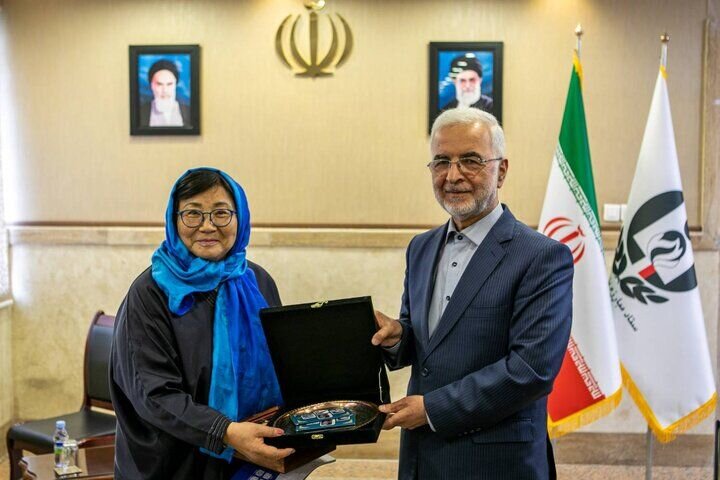Iran calls on UN to address drug-related issues in Afghanistan

TEHRAN – The Secretary-General of the Anti-Narcotics Headquarters, Eskandar Momeni, has urged the United Nations to allocate resources to address the drug-related problems in Afghanistan.
Momeni met the Secretary-General for Afghanistan and Head of the United Nations Assistance Mission in Afghanistan (UNAMA), Roza Isakovna Otunbayeva, in Tehran on Monday.
The officials discussed ways to fight drug trafficking from Afghanistan.
"Drug trafficking from Afghanistan to the eastern borders of Iran is associated with insecurity, terrorism, and armed actions, we ask the United Nations to recognize narcotics as a serious threat," ISNA quoted Momeni as saying.
Highlighting that drug trafficking from Afghanistan is still going on, Momeni noted, "The Islamic Republic of Iran supports and welcomes any effort that prevents and decreases the production, growth, and trafficking of drugs in Iran's neighborhood, but the fact is that there has been no noticeable reduction in drug production, and trafficking from Afghanistan so far."
The official made a proposal to the United Nations Office on Drugs and Crime (UNODC) and the delegation of The International Narcotics Control Board (INCB) to impose strict control and supervision on the shipment of precursors to Afghanistan.
The official urged Otunbayeva to follow up on Iran's proposals within the framework of a cooperation program between Iran, regional countries, and the United Nations, to adopt a strategy to combat drug-related problems in Afghanistan.
Otunbayeva, for her part, lauding Iran's efforts in improving the situation and livelihood of Afghan immigrants, promised to convey Iran’s suggestions to the Secretary General of the United Nations.
She went on to say that the UN, in cooperation with the UNODC, has conducted studies on narcotics in Afghanistan, the results of which will be presented at the upcoming Doha meeting.
“The main focus of the study plan is to carry out alternative cultivation programs in Afghanistan,” she further noted.
She criticized the international communities’ indifferences regarding Afghanistan’s issues.
In this regard, the UN should take serious action to help Afghanistan by allocating resources for infrastructure, sustainable development, and alternative cultivation programs to solve the problem fundamentally.
Momeni also expressed Iran’s readiness to share its experiences and help the organization in its efforts.
UNODC support
On May 1, the United Nations Office on Drugs and Crime (UNODC) and the Iranian law enforcement force explored ways to boost cooperation in areas related to drug trafficking and drug-related crimes.
During a meeting between the UNODC representative in Tehran, Alexander Fedulov, and Director General of Iranian Interpol Brigadier General Majid Karimi, the two officials revised the activities under implementation, and discussed the scope and perspective of future cooperation, according to the UN website.
In this meeting, Fedulov briefed the Iranian side on the recent activities and procurements conducted by UNODC Iran under the generous funds received from the UNODC traditional donors.
He reiterated the readiness of the UNODC to delegate technical and procurement support to the Islamic Republic of Iran under the UNODC Iran Country Partnership Program with the Islamic Republic of Iran.
Brigadier General Karimi, for his part, stated that drugs are obviously one of the pillars of the UNODC mandate as reflected in its name, though various topics on crimes could also be addressed by this Office, and inter alia he suggested cooperation to address challenges posed by drug trafficking and drug related crimes.
This meeting was organized as part of the activities foreseen in the framework of sub-program 1 “Border Management and Illicit Trafficking” and sub-program 2 “Crime, Corruption, and Criminal Justice” of the UNODC Country Partnership Program for the Islamic Republic of Iran.
MT/MG
Leave a Comment